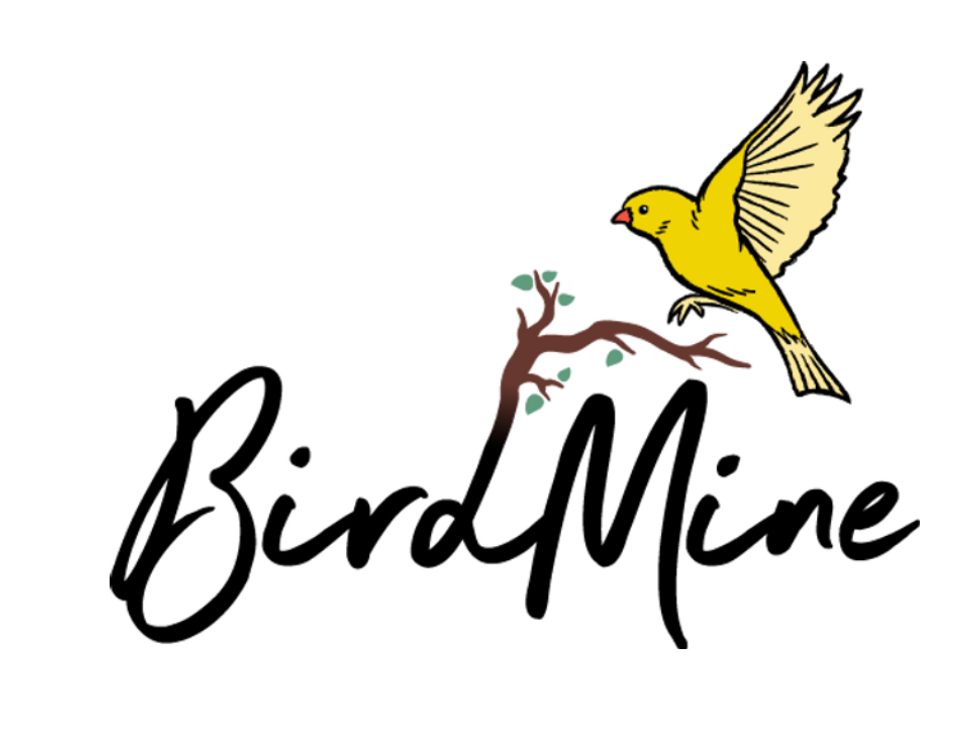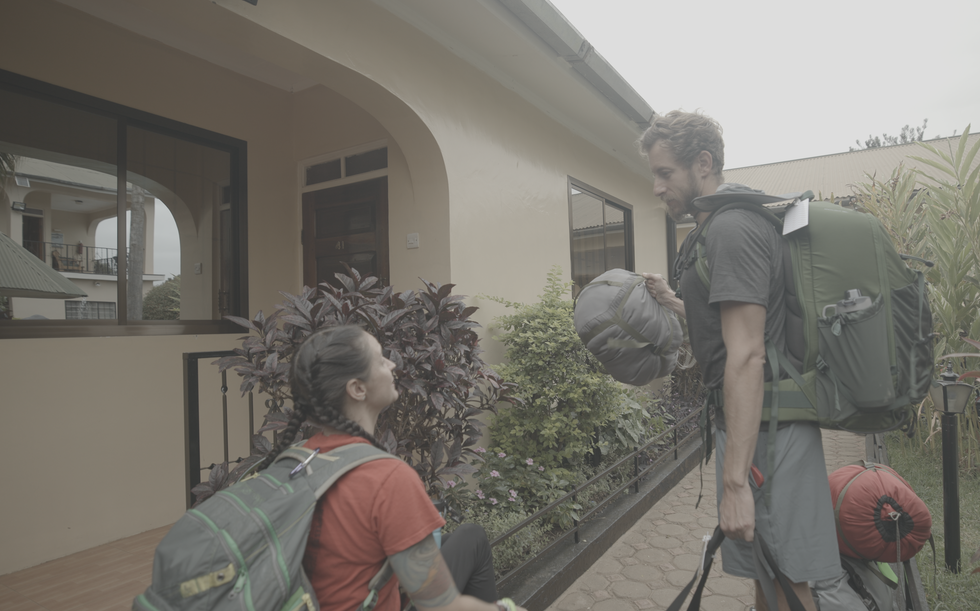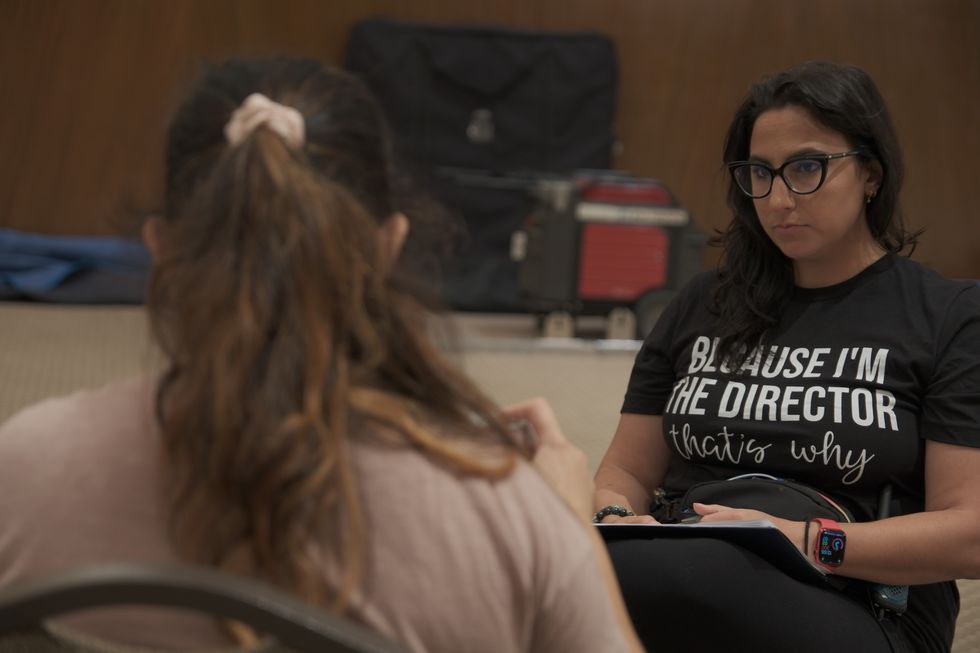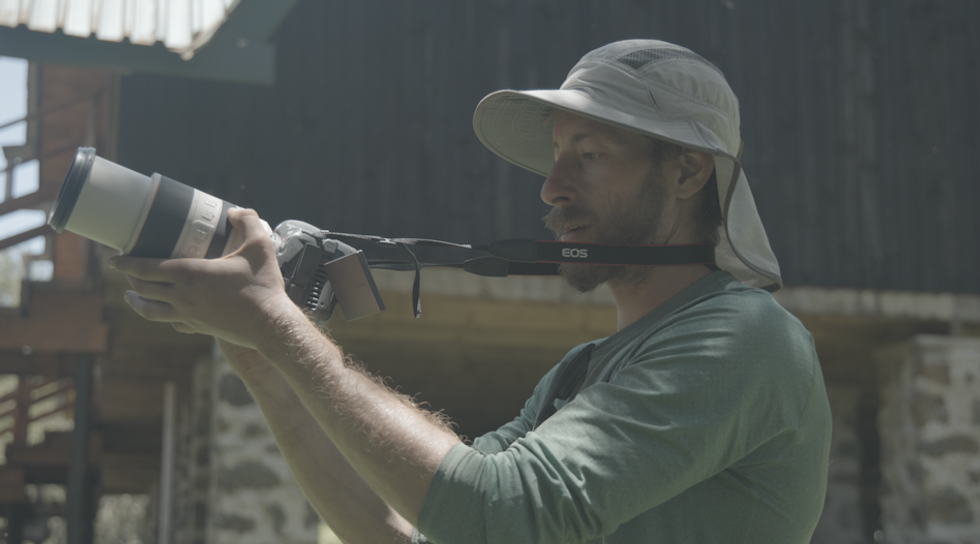How to Use Your Voice to Make Socially-Driven Films
We interview the filmmakers Allison Norlian and Kody Leibowitz, the minds behind BirdMine.

Meandering Scars
In order to set yourself apart in Hollywood, it's important to find you voice and to make movies and TV shows that you truly care about. That means figuring out what you believe in and fostering your ideas from there.
Filmmakers Allison Norlian and Kody Leibowitz, the co-founders of the new production company BirdMine, do just that, making socially conscious stories that connect on many levels.
We sat down with them to talk about their new company and what's in store for the future.
Let's dive in.

Editor's Note: the following interview is edited for length and clarity.
No Film School: What inspired you to start your own production company, BirdMine, and why did you choose to focus on socially driven films?
Allison + Kody: We met as interns in college, with dreams of becoming reporters and journalists. We followed our dreams, becoming television news reporters and anchors and working in various markets across the country, and we remained friends during our respective journeys. As the years went by, we would discuss wanting to tell longer-form, more impactful stories—we wanted to take what we'd learned as journalists and become documentarians. Documentaries were the pinnacle; we'd have more time to investigate, research, and dive into the stories.
But for a while, it was just talk—a pipedream that neither of us knew would ever come to fruition.
And then, in 2020, everything changed. We decided to act and start BirdMine, our company that focuses on amplifying the voices and stories of underrepresented communities in socially driven films.
It only made sense that our films would be socially driven, considering who we are as people and why we got into journalism and documentary work in the first place.
Allison became a journalist and now a filmmaker because of her profoundly disabled sister. Growing up with a sister with developmental disabilities and a grandmother with physical disabilities because of Multiple Sclerosis, Allison became an advocate at an early age for the disabled community. She became a journalist with the hope of "changing the way the world views disabilities" and creating a more accessible and inclusive reality for people with disabilities and their families. Being immersed in two marginalized communities since birth—both the disabled and Jewish communities—Allison gained empathy for everyone and anyone suffering. She found her calling to help through journalism and now filmmaking.
Kody spent much of his journalism career as an investigative journalist, holding public officials accountable and exposing racial injustice, political corruption, and wrongdoing by corporate or religious institutions. Growing up with a single mother who was a high school educator exposed Kody to the inequalities faced by so many in America—and people around the world. Kody also saw how illness and domestic violence impact a family at an early age. Kody was uncomfortable with this reality and desperately wanted to help create a more equitable society, so he became a journalist.
Creating socially conscious films is just an extension of what we have been doing all our lives.

NFS: Can you tell us more about your upcoming projects, "Thirteen" and Meandering Scars? What can audiences expect?
A+K: Meandering Scars is BirdMine’s first documentary, and "Thirteen"is BirdMine’s first short film; both movies center on the disability community.
Meandering Scars is about a woman, paralyzed in a domestic violence incident who spent the better part of two decades depressed and suicidal. Then, in 2019, she discovered a nonprofit that helps people with disabilities compete in obstacle course races, like the Spartan and Tough Mudder; she started participating, which changed her life. She then decided to make it her mission to climb Mt. Kilimanjaro, the tallest free-standing mountain in the world, located in Tanzania, to spread awareness about mental health struggles and suicide in the disability community. She contemplated suicide often during her life and has had multiple friends with disabilities die by suicide.
But the film is about more than just the climb. It is about our story subject's journey as a disabled person in America. It is about how inaccessibility, perceived burdensomeness, and financial turmoil due to a faulty system contributed to her deteriorating mental health and suicide ideation. It's about how she overcame and worked through those dark feelings and how she helps other disabled people today. The Kilimanjaro climb is just a part of a bigger narrative.
Meanwhile, "Thirteen" is a short narrative film inspired by real-life—specifically, Allison’s mother and sister. The film is about a mother fighting to have a Bat Mitzvah for her nonverbal, developmentally disabled, terminally ill daughter in a synagogue that refuses to break from tradition. Allison’s older sister was the first nonverbal, developmentally disabled person to have a Bat Mitzvah at their synagogue decades ago.
The script for "Thirteen" advanced and did well in numerous script competitions; it was a finalist in HollyShorts, a semifinalist in Page, WeScreenplay Short Script lab, and Outstanding Screenplays Shorts competition, and a quarterfinalist in the Melech Tel Aviv Film Festival and Screencraft.
Also, for "Thirteen", we casted completely authentically—all Jewish roles played by Jewish actors. The young woman who plays the role inspired by Allison’s sister is also on the autism spectrum.
"Thirteen" is finished and we’ve submitted it to multiple festivals, and Meandering Scars is still in post-production.
NFS: Kody, what was it like to film Meandering Scars, and what challenges did you face?
Kody: Important.
Filming felt important, and it still feels important as we continue the post-production of Meandering Scars. We live in an inaccessible society designed to punish people for their disabilities, leading some disabled folks to believe—falsely—that their lives are less than.
So, for me, it became important to film the everyday life of Erika Bogan, our main subject of Meandering Scars; to portray her day-to-day life; to film disabled joy, to embark on and film her climb; to show what inaccessibility truly means; to humanize her mental health and physical struggles; to offer potential solutions led through research by a person with a disability; to do our best to put disability at the forefront in our filming techniques and film.
The physicality and intensity of being embedded on a climb—so filming while climbing—was undoubtedly challenging for me. I trained for a year-and-a-half to get into my best physical shape to be able to handle days of 40 pounds of equipment while climbing and filming, running at times to get to shots, and being able to stay (as best as possible) a fly on the wall in Erika's journey up Mt. Kilimanjaro.
And even with that training, difficulties can pop up. On the morning of Summit Day, my neck and back were in immense pain from pushing myself the days before. I also hadn't slept the night before the summit. Because of the pain and my lack of sleep, I almost didn't go up with Erika, her team, and our crew. I ultimately went, but it was certainly a challenge.
After filming, while writing the script for Meandering Scars, one of our challenges was detailing Erika's 'reasons' for climbing Mt. Kilimanjaro. Erika had lost many friends to suicide, and for her, one friend in particular was top of mind throughout her trek up Mt. Kilimanjaro. This friend passed away before we knew Erika, and we wanted to honor her life and show the audience why her life was meaningful to her family and community in how we told Meandering Scars. I hope we did justice for her in our film.

NFS: Allison, "Thirteen" is a short film inspired by your mother and sister. What led you to decide to make it about your mother and sister? What was their involvement in the creative process? Finally, how did it feel to see your family's story come to life on screen in the final result?
Allison: My mother and sister are my reason for everything.
Growing up, my mom was a single mom, and as I told you, my sister is profoundly disabled, and it was always “us against the world.” I wouldn’t be here today without those two - they made me the woman I am and inspired me to become an advocate, journalist, and now a filmmaker.
I wanted to write and create "Thirteen" to honor them and share an important story from our lives with a universal message that I hope will help other people with families like ours feel less alone—the way we often did in our experiences.
My mother was involved early on when I first wrote "Thirteen"; she read several iterations of the script before it was finalized.
Watching "Thirteen" come to life and then seeing it on screen was a remarkably emotional and sentimental experience.
I still remember, during production, we were filming the ending (I won’t say what happens because NO SPOILERS!), but I felt in my soul that I was watching my mom and sister as I watched Rena Strober (who plays the role inspired by my mom) and Naomi Rubin (who plays the role inspired by my sister) perform. Once they were done with their take, the tears flowed and wouldn’t stop. There is a photo of Naomi running off-set to comfort me. It was a sweet moment.
Words can’t describe the feeling I had when I finally saw "Thirteen" on the big screen, and all of our hard work came to fruition—it was an out-of-body experience.

NFS: How has your experience in journalism helped you in your work as a filmmaker? Do you approach storytelling differently as a filmmaker than you did as a journalist?
A+K: The transition from journalism to filmmaking felt natural, and our experiences working as journalists have only enriched our journey as documentary and narrative filmmakers.
While traditional journalism is unique and distinct from filmmaking, it provides the tools needed to be an effective storyteller.
As a journalist, we learned how to take complicated stories and make them exciting, understandable and relatable; we learned how to take in a lot of information and share it concisely and effectively; we were taught principles, ethics, and objectivity; and we were given the tools and opportunities to learn filming techniques, editing, writing, etc.
Everything we learned as journalists translated flawlessly when we began this journey, and we wouldn't be the filmmakers we are today without our journalist backgrounds.
Even now, we still approach our work as journalists; we want to ensure we're telling impactful and meaningful stories—specifically with our documentaries—that can solve societal problems with solutions.
Our platforms have changed, but our methods and practices are effectively the same.
NFS: What do you hope to achieve with your films, particularly in terms of raising awareness about important issues impacting people with disabilities and other vulnerable communities?
A+K: Wow, what a great question. We have many hopes and dreams and want to achieve so much with our films. We hope we can reach many people and change the way the world views disability. We hope to shed light on the issues our more vulnerable populations face in hopes of creating a more empathetic, inclusive, compassionate, and accessible society. We hope to make people who are often in the shadows feel seen.
Our goal is to reach as many people as possible with our films, but if we can even change one person's heart and mind—especially since we are new filmmakers—we did our work, and we did it damn well.
We hope BirdMine is so successful that our production company can eventually work like the A24 model but with socially conscious films. We hope to one-day finance other filmmakers doing great work to create their socially conscious movies under the BirdMine name.
NFS: What is next for you?
A+K: When it comes to "Thirteen", we are waiting to see what festivals we’ll place in with the hope of wider distribution/release. Once Meandering Scars is complete, we will also enter the festival circuit with the goal of it one day being available on a streaming platform.
We are both currently working on new feature scripts and in the research phase of our next documentary.
Stay Tuned!
- How to Build an Audience for Your Film Using YouTube (the Right Way) ›
- Jake Gyllenhaal on How to Make World-Changing, Character-Driven Films ›











